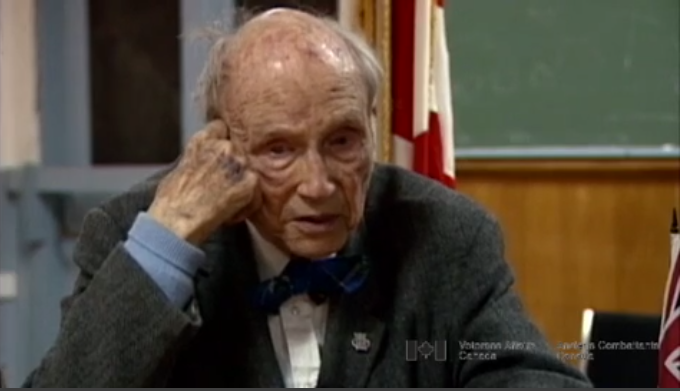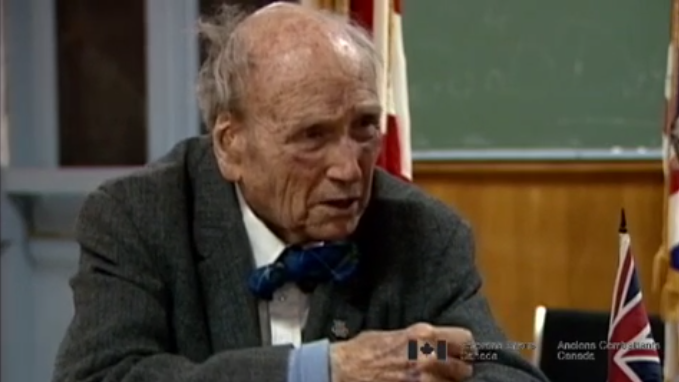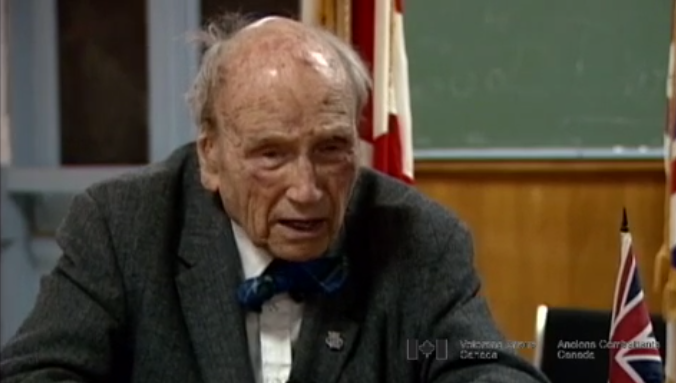No Escorts Available
Heroes Remember
No Escorts Available
Interviewer: Help me Mr. Haegert, you made a
comment about how there was no convoy
necessary for your ship, why was that?
Why were there no escorts necessary?
They couldn't spare them. We had no...
We always went without any escort at all.
As a matter of fact, I wasn't on the ship
when she was sunk, the Italians sank it,
five hundred people lost their lives,
including the person in my job.
But they had no escort at all and they just
hoped to hell no one could catch them.
You know, see, but they had to look after
the troops, you know.
So when there were troops there were
all kinds of people around, you know,
ships and small ships and oh,
in fact we had one huge thing,
the Ramillies was with us in one trip.
Interviewer: The Ramillies is a British battle ship?
Yes, a big battle ship, he was with it too.
Interviewer: What happened when the
Ramillies was with you?
Well, she went, as a matter of fact we took
some people to New Zealand and
she came there and they put on a bit
of a show, they dressed up as though they
were crossing the line, everybody clapped,
you know, that sort of thing, it was a
very friendly sort of a feeling you know.
But there's a very sad thing about it that I
could tell you, I might as well tell it to you.
You know, I am of German decent you see
and the man on the Ramillies was my boss
in the Canadian hydrographic and in
front of everybody, in front of everybody,
on both sides on the table all these surveyors,
I sat at the, I was the senior technician.
He said looked at me and he say's
"Anyone who has a drop of German blood
they should be just torn to pieces."
And what could I say?
And of course the royal family's all German
you know. More German than I am,
I'm not German, I'm English, I consider myself,
I was brought up in England,
I feel like an English,
I wear an English tie, I speak like an Englishman.
I am nothing to Germany,
I've never been to Germany. I speak German,
I speak French beautifully and I speak several
other languages too you know,
I could learn anything.
I spoke Japanese quite well too.
Interviewer: So you were insulted by the remark?
I felt sorry for him actually, I felt sorry for him.
I thought, what a stupid person you are,
that's what I felt, I didn't feel angry at all.
Related Videos
- Date modified:






